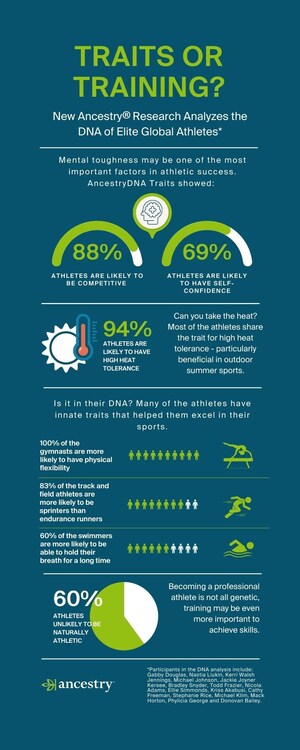Available to everyone at no cost, the new Articles of Enslavement collection will help descendants of previously enslaved people make family history discoveries
LEHI, Utah, June 11, 2024 /PRNewswire/ -- Today Ancestry®, the global leader in family history, announced the publication of approximately 38,000 newspaper articles related to enslaved people in the United States from 1788-1867. Featuring details on more than 183,000 formerly enslaved people, the new free collection could help millions of descendants discover more about their families. This collection is the latest step in Ancestry's commitment to make culturally significant history that is at risk of being forgotten available to everyone at no cost.
To help contextualize the African American experience during the period of enslavement, Ancestry turned to experts, academics, and historians like Dr. Karcheik Sims-Alvarado, Assistant Professor of Africana Studies at Morehouse College.
"Greater access to these records on Ancestry will enhance understanding of how chattel slavery and the forced movement of enslaved people became normalized in the United States," shared Dr. Sims-Alvarado. "This collection is invaluable for providing descendants of enslaved individuals with insights into their ancestral histories and their forebears' acts of resistance and resilience, despite the Emancipation Proclamation being largely ignored by enslavers, newspaper publishers, and lawmakers. By piecing together individual stories, researchers can construct a more detailed picture of the lived experiences of Black Americans, enriching our collective understanding of history."
This collection features crucial details about more than 183,000 enslaved people including names, ages, physical descriptions and locations. Many of these original newspaper articles contain never-before seen information about enslaved individuals pre-1870 in communities where courthouse and community records were otherwise destroyed or lost. The newspaper articles within the collection contain sensitive content related to the buying and selling of enslaved people that may be distressing or traumatic for some audiences.
"Family history research can be challenging for Black Americans due to the long history of slavery in the United States and the lack of documentation about those who were enslaved," said Nicka Sewell-Smith, professional genealogist and Senior Story Producer at Ancestry. "Exploring the articles in the context of their original publication can help us understand more about how slavery shaped everyday life in the United States and can help descendants of previously enslaved people unearth key discoveries about their family history."
This collection complements the more than 18 million records already available for free on Ancestry that document the lives of formerly enslaved or newly emancipated individuals. This includes Freedmen's Bureau and Freedman's Bank records, select U.S. Federal Census records, and other records of the enslaved.
To help foster a deeper understanding of the period of enslavement and the role newspapers play in chronicling chapters throughout history, Ancestry is hosting community dialogues and education opportunities, including:
- On Thursday, August 1st, 2024, Ancestry will host a panel discussion, "Genealogy & Journalism: Leveraging Primary Source Records to Amplify Storytelling," at the National Association of Black Journalists convention in Chicago.
- We partnered with Bethany Bell from the University of Virginia to equip viewers with critical reading strategies and tools to help prioritize their mental and emotional well-being while reviewing the collection. http://blogs.ancestry.com/cm/enslaved-people-newspaper-collection
Explore the new Articles of Enslavement collection for free here: www.Ancestry.com/Articles-of-Enslavement.
About Ancestry®
Ancestry®, the global leader in family history, empowers journeys of personal discovery to enrich lives. With our unparalleled collection of more than 60 billion records, over 3 million subscribers and over 25 million people in our growing DNA network, customers can discover their family story and gain a new level of understanding about their lives. Over the past 40 years, we've built trusted relationships with millions of people who have chosen us as the platform for discovering, preserving, and sharing the most important information about themselves and their families.
Contact: Avery Barzizza, [email protected]
SOURCE Ancestry

WANT YOUR COMPANY'S NEWS FEATURED ON PRNEWSWIRE.COM?
Newsrooms &
Influencers
Digital Media
Outlets
Journalists
Opted In






Share this article